Genetics, aging, environmental factors, and inadequate skin care all cause dry skin. Thankfully, remedies exist, whether dry skin is a lifelong concern or just a temporary issue.
This article covers the best ways to treat dry skin, restore its natural oils, and maintain a hydrated, glowing complexion.
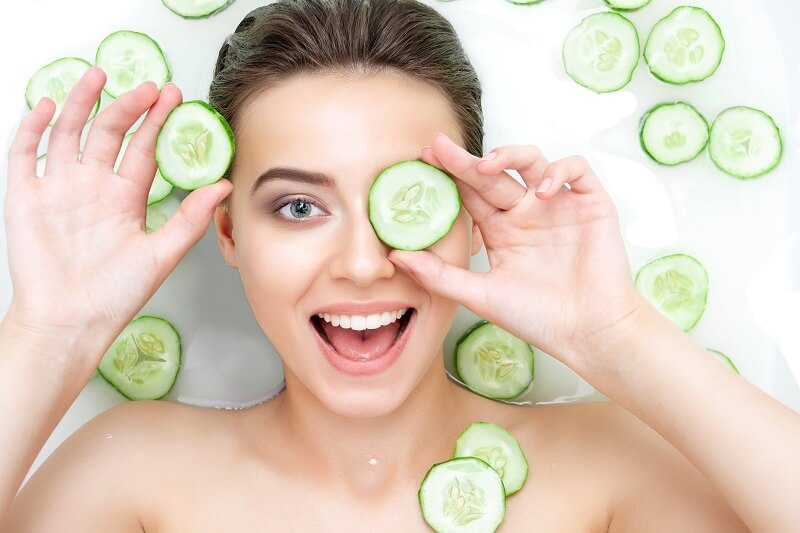
How to Get Rid of Dry Skin
The biggest problem with dry skin is the lack of moisture. The body doesn’t produce enough natural oils to preserve the protective skin barrier. This leads to tight and itchy skin prone to cracks and infections.
Appropriate skin care is an essential step in dry skin prevention and treatment. It includes gentle cleansers, moisturizers, body lotions, sunscreens, microbiome-friendly skin care, and other cosmetic products that nourish and strengthen compromised skin.
Cosmetic treatments like facials, chemical peels, and LED light therapy are an excellent addition to topical skin care, providing quicker and more dramatic results. They help restore moisture and reduce aging signs more effectively than creams and lotions, but the results need to be maintained with hydrating products.
The following skincare and treatment recommendations help maintain the right level of hydration and minimize the chance of potential complications caused by dry skin.
How to Treat Dry Skin on the Face?
Facial skin is often the most sensitive to dryness because it is thinner and more exposed to the sun and environment than other areas.
To prevent and treat dry skin on the face, cosmetic professionals recommend a consistent, daily skincare routine with products that deeply hydrate the skin.
1. Cleansing
Cleansing is a must for all skin types. If you have dehydrated skin, cleanse only once before your night skincare routine. In the morning, wash your face with water and gently pat it with a towel. Use mild cleansers without sulfates, alcohol, and perfume, as these ingredients are too harsh and strip away the skin’s natural oils. Look for microbiome-friendly products containing probiotics, prebiotics, and postbiotics because they help build a more resilient skin barrier, restore the natural balance of oils in the skin, and maintain optimal moisture levels.
Vibrant Skin Bar experts recommend Vibrant Cleanse, a lightweight cleanser for all skin types, infused with healing botanical extracts and barrier-strengthening biotics. It deeply cleanses without over-drying the skin, increasing skin cell turnover, minimizing inflammation, and improving the skin tone.
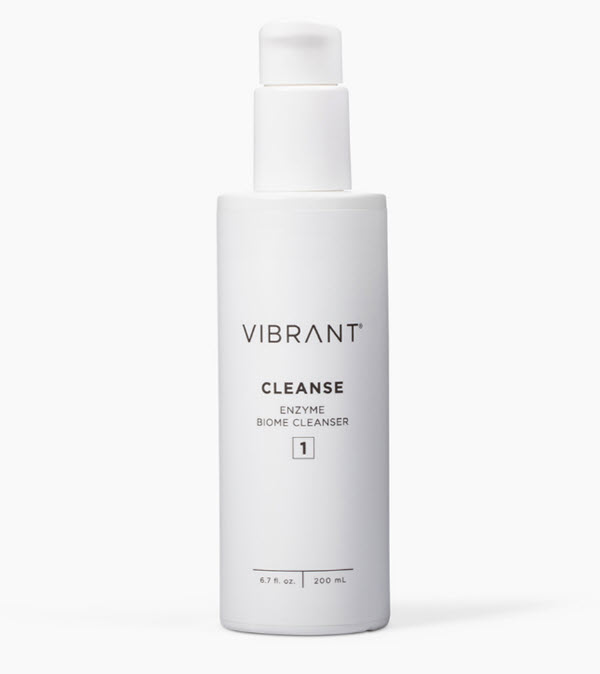
2. Moisturizing
Use a moisturizer right after washing your face, as it best seals in moisture when applied to damp skin. Use moisturizers with humectants (like hyaluronic acid, beta-glucan, and glycerin) and hydrating agents (such as cucumber, aloe vera, chamomile, etc.).
Osmosis MD Quench Moisturizer is an excellent choice for dry skin because it instantly restores moisture and helps protect skin with a compromised protective barrier.
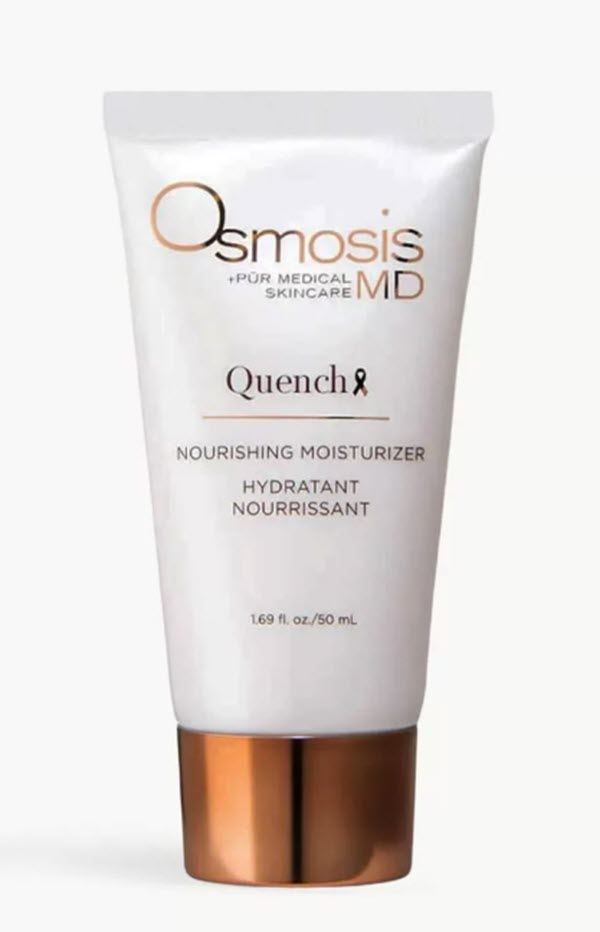
3. Sun Protection
Sun damage is among the main factors contributing to skin dryness and photoaging. Sunscreen is a skincare essential as it protects the skin from UV radiation. Apply it every day as the last step in your morning routine and reapply every two hours if spending time in the sun.
Elta MD UV Daily is an all-time favorite because of its lightweight, quickly absorbing formula that doesn’t leave any residue. It also contains hyaluronic acid that increases skin moisture.
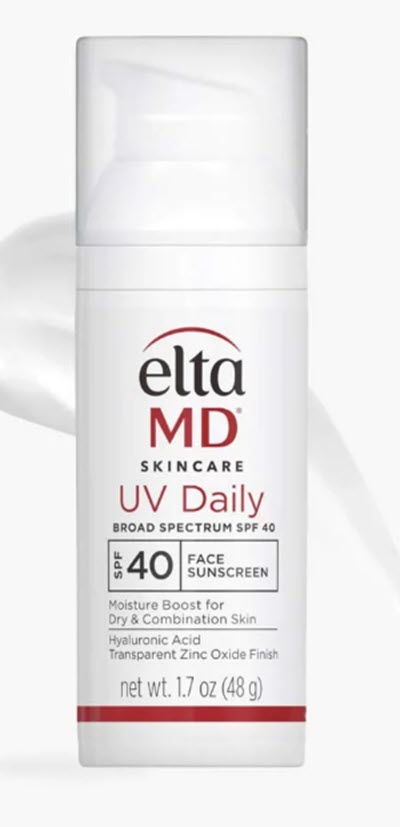
4. Hydration with Face Masks
If your skin is extra dry, make sure to incorporate weekly face masks in your routine. Use products that deeply hydrate and soften the skin, like shea butter, avocado, aloe vera, cucumber, glycerin, and urea.
Note: Discover all the benefits of avocado oil for the skin.
Besides skincare products, skin experts recommend occasional cosmetic treatments that alleviate dry facial skin and help restore optimal moisture levels. Examples include facials, light chemical peels, and Vivace Microneedling for the face.
5. Facials
Facials, performed in med spas and cosmetic salons, include thorough cleansing and the application of products designed to treat specific skin issues. For dry skin, providers often use gentle enzyme peels to remove surface impurities, soothing botanicals and antioxidants to strengthen the skin barrier, and intensely hydrating agents (hyaluronic acid, ceramides, etc.) to lock in moisture.
Vibrant Skin Bar offers the following facials suitable for dry skin:
- HydraFacial
- Fire and Ice Facial
- Pumpkin Facial
- Signature Facial
6. Light Chemical Peels
Chemical peels remove the skin’s uppermost layer, which contains dead skin cells, dirt, and other impurities. They enhance collagen production to improve various skin concerns. Light chemical peels, which use low concentrations of gentle exfoliating agents like glycolic and lactic acid, are ideal for dry and sensitive skin.
7. Vivace Face
Vivace RF Microneedling involves the use of a hand-held device with tiny needles to create controlled injury on the face and trigger the body’s natural healing mechanism, including collagen and elastin production. The process improves circulation, increases hydration, and minimizes aging signs.
How to Get Rid of Dry Skin on the Hands?
The skin on our hands often gets dry because of frequent handwashing, contact with harsh ingredients in soaps and detergents, and sun exposure. Hand creams and occasional cosmetic treatments for the hands can significantly improve the rough, flaky skin.
1. Hand Creams
The best hand creams include rich oils and emollients like shea butter, cocoa butter, coconut oil, and jojoba oil, and humectants like hyaluronic acid and glycerin. They often contain antioxidants and soothing botanicals to protect them from environmental damage and promote healing. Examples include niacinamide, vitamin E, and aloe vera.
2. Hand Peel
A hand peel is a chemical peel for the hands. It exfoliates dead skin cells and impurities from the skin’s top layer, improving tone and texture, and revealing gentler, more youthful skin. At Vibrant Skin Bar, patients can add the restorative hand peel to their facial routine.
How to Get Rid of Dry Skin on the Body?
Like facial skin, dry skin on the body is also treated with skincare products and cosmetic treatments. The best moisturizing body lotions and creams include ingredients like ceramides, hyaluronic acid, shea butter, avocado oil, argan oil, glycerin, and urea.
Vibrant Skin Bar experts recommend the following products and treatments for dry skin on the body.
1. Vibrant Cinnamon Coffee Scrub
This soothing body scrub contains ground coffee, cinnamon, avocado oil, jojoba oil, and vanilla beans. It is designed to infuse dry skin with rich, nourishing, and hydrating ingredients, improving circulation and smoothing the skin for a more youthful appearance.
Use it while showering. Apply on wet skin using circular motions from the feet upward. Rinse with lukewarm water.
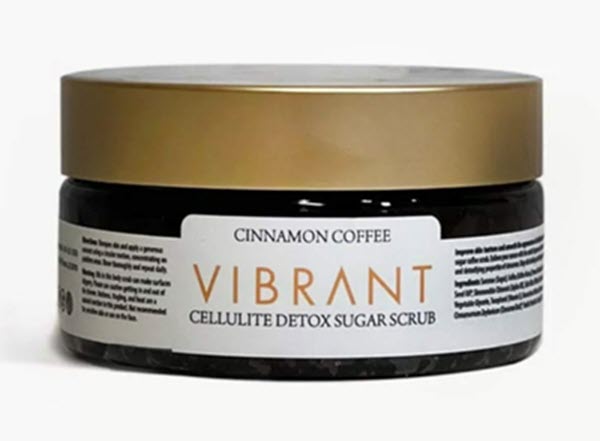
2. Microneedling
Microneedling is used on all body parts, not just the face. The tiny punctures created by the microneedling device stimulate collagen synthesis and repair the compromised skin barrier, restoring the skin’s natural ability to retain moisture. The treatment gives the skin a youthful glow.
3. Laser Resurfacing
Laser resurfacing involves the use of a laser device to send light energy into the skin, heating skin cells and causing controlled injury. This provokes a healing response and collagen synthesis. Laser therapy is commonly used for the face, chest, arms, abdomen, and thighs. The result is a more resilient, hydrated, and rejuvenated skin.
How to Treat Dry Skin on the Feet?
Though not as visible as the face and hands, the skin on our feet can also suffer from dryness and itching, mostly due to wrong footwear, excessive sweating, sun exposure, and walking barefoot. We seem to remember our feet only during summer, but they require consistent skin care, just like other areas.
The best moisturizers for dry feet contain hydrating ingredients like urea, coconut oil, shea butter, and glycerin. Apply them in the morning and evening but avoid the area between the toes to avoid fungal infections. Don’t forget to apply sunscreen when wearing sandals.
Consider a monthly foot peel to exfoliate sun-damaged skin cells, soften the skin texture, and alleviate dryness and cracks.
How to Prevent Dry Skin
Certain skincare and lifestyle habits may dehydrate your skin, even if it typically isn’t dry.
Avoid the following:
- Long, hot baths - Bathe for a maximum of ten minutes in warm or lukewarm water.
- Over-cleansing - Cleanse your face once or twice a day with gentle cleansers.
- Over-exfoliating - Exfoliate once or twice a week to remove dead skin cells and use gentle cleansers with alpha-hydroxy acids.
- Drying soaps and harsh chemicals - Use fragrance-free, alcohol-free soaps with glycerin and wear gloves when working with cleaning products.
- Rubbing the skin - After cleansing, pat dry with a towel and avoid scratching.
- Fabrics that irritate the skin - When possible, wear cotton clothes that don’t cause allergic reactions and irritate the skin.
- Devices that remove moisture from the air – Don’t spend a lot of time in spaces with air-conditioners, heaters, wood-burners, and fireplaces. Otherwise, consider using a humidifier.
The following tips help maintain optimal moisture levels in your skin:
- Use anti-aging products - Minimize the effects of dry skin caused by aging by using the right anti-aging skincare products. Vitamin A is among the most potent skincare ingredients that repair damaged skin.
- Drink plenty of water - If your skin is dehydrated from environmental factors, consuming at least eight cups of water helps restore the necessary moisture levels and balance natural oils. High water intake can also improve your skin complexion by removing toxins from your body.
- Use proven home remedies for dry skin – Coconut oil, oatmeal, honey, avocado, and yogurt are common kitchen ingredients that help relieve and rehydrate dry skin. Use them in hydrating face masks and soothing baths.
When Should You Visit a Dermatologist for Dry Skin?
A hydrating skincare routine and cosmetic treatments usually help with dry skin. However, if your condition worsens and you experience the following symptoms despite using daily moisturizers, seek a dermatologist’s help:
Conclusion
In most cases, dry skin isn’t a medical issue but rather a skin condition that you can treat and improve. The most important step in treating dry skin is proper hydration with adequate skincare and cosmetic solutions. Moisturize daily, use products that nourish and protect the skin, and apply home remedies to irritated skin. The right skin care will ensure you have soft, smooth, and healthy skin.


